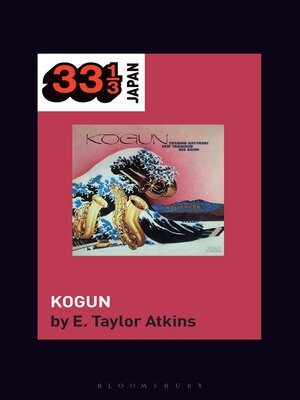
Sign up to save your library
With an OverDrive account, you can save your favorite libraries for at-a-glance information about availability. Find out more about OverDrive accounts.
Find this title in Libby, the library reading app by OverDrive.



Search for a digital library with this title
Title found at these libraries:
| Library Name | Distance |
|---|---|
| Loading... |
A study of the 1974 album Kogun by the Toshiko Akiyoshi-Lew Tabackin Big Band, this book assesses not just its importance in jazz history but also its part in public remembrance of World War II in Japan.
In 1974 a Japanese soldier emerged from the Philippine jungle where he had hidden for three decades, unconvinced that World War II had ended. Later that year, the Toshiko Akiyoshi-Lew Tabackin Big Band released its first album, Kogun ("solitary soldier"), the title track of which adopted music from medieval Japanese no theater for the first time in a jazz context as aural commemoration of his experience. At a time when big band jazz was mostly a vehicle for nostalgia and no longer regarded as a vital art, the album was heralded as a revelation. Kogun elevated Akiyoshi's reputation as a brilliant composer/arranger and earned Tabackin acclaim as a compelling, versatile improviser on tenor saxophone and flute.
In 1974 a Japanese soldier emerged from the Philippine jungle where he had hidden for three decades, unconvinced that World War II had ended. Later that year, the Toshiko Akiyoshi-Lew Tabackin Big Band released its first album, Kogun ("solitary soldier"), the title track of which adopted music from medieval Japanese no theater for the first time in a jazz context as aural commemoration of his experience. At a time when big band jazz was mostly a vehicle for nostalgia and no longer regarded as a vital art, the album was heralded as a revelation. Kogun elevated Akiyoshi's reputation as a brilliant composer/arranger and earned Tabackin acclaim as a compelling, versatile improviser on tenor saxophone and flute.







